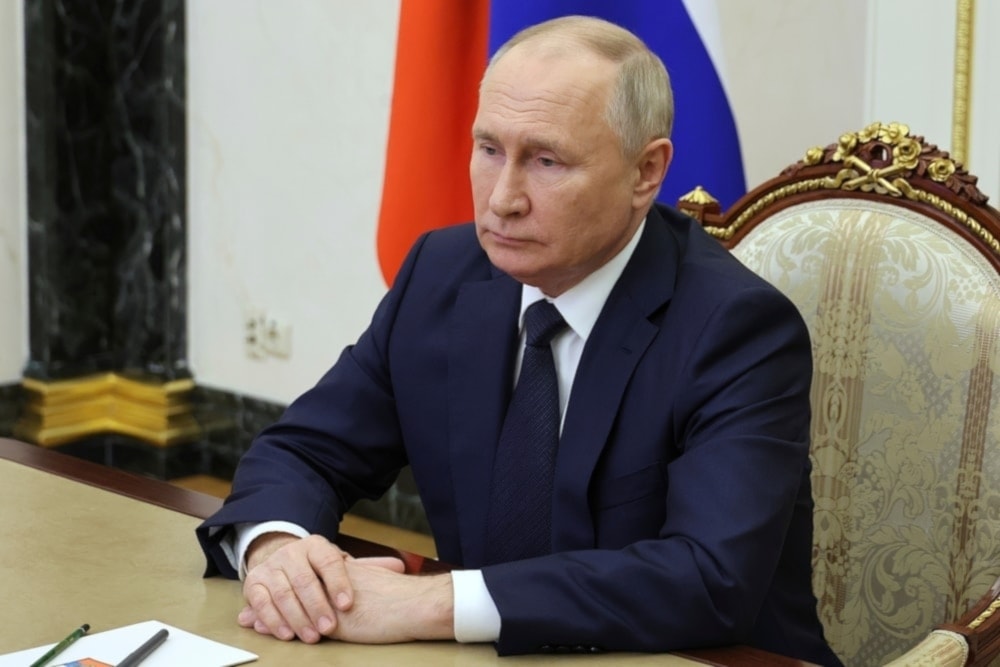Putin revamps Russia's nuclear rules, unveils new arsenal guidelines
During a televised meeting of Russia's Security Council on nuclear deterrence, Putin has discussed the key aspects of the revised document, which is awaiting his approval.
-

Russian President Vladimir Putin chairs a security council meeting in Moscow, Russia, on Friday, November 24, 2023. (AP)
Russian President Vladimir Putin has revealed forthcoming revisions to Russia’s nuclear doctrine, which notably lowers the threshold for the use of nuclear weapons.
During a televised meeting of Russia's Security Council on nuclear deterrence, Putin discussed the key aspects of the revised document, which is awaiting his approval.
He warned that Russia may now consider using nuclear weapons in response to a conventional arms attack, in line with the new updates to the doctrine, formally known as the Basic Principles of State Policy on Nuclear Deterrence.
Putin explained that an attack on Russia by a non-nuclear nation with the “participation or support of a nuclear power” would be treated as a “joint attack on the Russian Federation.”
Additionally, he noted that Russia could deploy nuclear weapons in response to any conventional attack considered a “critical threat to our sovereignty.”
This adjustment significantly lowers the threshold for Russia’s use of nuclear weapons and coincides with discussions among Ukraine’s Western allies about supplying Kiev with longer-range weapons capable of striking military targets deep inside Russia.
The development follows an unexpected Ukrainian incursion into Russia’s Kursk region last month.
Although Putin did not directly reference Ukraine, he emphasized that the updates to Russia’s nuclear doctrine were necessary due to a rapidly changing global landscape that has introduced new threats and risks to the country.
According to a TASS news agency report, the revised doctrine expands the list of nations and military alliances subject to nuclear deterrence. It also includes more entries in the list of military threats that require nuclear deterrence for neutralization.
A flashback
In February 2023, Russia also suspended its participation in the New START treaty with the United States, citing Washington as the reason for the treaty's suspension. This agreement limits the number of nuclear warheads that each nation can deploy.
Both Washington and Moscow exited the Intermediate-Range Nuclear Forces (INF) Treaty in 2019, with each blaming the other for the imminent collapse of the crucial nuclear arms control agreement.
The INF treaty prohibited the production, testing, and deployment of land-based cruise and ballistic missiles with ranges between 500 and 5,500 kilometers.
The withdrawal from the INF treaty was part of a broader pattern of treaty exits, marking the end of several decades of nuclear arms control agreements between Washington and Moscow, agreements originally aimed at preventing a nuclear conflict between the former Soviet Union and the United States.
The Strategic Arms Reduction Treaty (START), signed on April 8, 2010, remains the last nuclear arms control agreement between Russia and the US. It limits the number of intercontinental nuclear weapons that both countries can maintain. The treaty, which took effect in February 2011, is set to expire in February 2026.

 3 Min Read
3 Min Read









